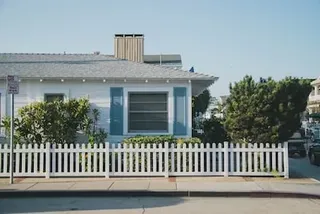Every property owner in the state of Texas should understand how squatter rights can impact their investments. A squatter is a person who occupies a residential property without owning the property or paying rent. Essentially, they are living on someone else’s uninhabited property. While you may have legal ownership of the property and have several means by which to get rid of the squatter, there are scenarios where that squatter can take possession of your property through a legal process.
What Are Squatter Rights?
The state of Texas grants squatter rights to people living in an unoccupied residence owned by someone else. The squatter can claim legal possession of the property if they meet several conditions during their occupation. As the actual owner of a property, it is important that you understand squatter rights so that you can avoid legally losing your property to this type of occupant.
Overview of Texas Squatter Rights
Squatter rights in Texas are based on a concept known as adverse possession. Even if the squatter did not make rent payments, they can make a legal claim to possession of your property if they have occupied the residents for a ten-year period. There are other requirements that must be met for an adverse possession claim, which will be detailed below.
Adverse Possession Claim
Though this may sound strange, an adverse possession claim occurs when a trespasser can claim ownership of a property from the previous owner after a period of ten years. That period could be shorter if the squatter obtained Color of Title or paid property taxes during their occupancy.
How a Squatter Gains Legal Ownership of the Property

As the actual property owner, you need to understand Texas law on the matter to Before we get into the process of removing a squatter, it is crucial that you understand how a squatter can come to fulfill the requirements of an adverse possession claim. The squatter must be able to prove that the five requirements below are true in order to succeed with their adverse possession claim.
Hostile Possession of the Property
Hostile does not necessarily mean violent in this case. In most cases, the squatter will actually occupy the vacant property completely peacefully. However, the “hostile” aspect of this clause simply refers to the fact that the squatter is occupying a property they neither own nor pay rent for.
They may not realize they are trespassing and are using the property in good faith, or they are aware that they are trespassing but intend to gain possession of the property through an adverse possession claim.
Exclusive Possession of the Property
A squatter must have used the property exclusively, not shared it with other tenants or squatters. They must also prove that they had sole possession of the property during the statutory period. If they share possession with another party at any point, including the actual owner, their claim may be nullified. If any other tenants, owners, or even strangers are involved, the squatter has not retained exclusive possession of the property.
Open and Notorious Possession of the Property
A squatter must also occupy the residence publicly. If they attempt to hide their presence, they will not be able to claim adverse possession. Often, the presence of neighbors who know about the squatter will help their case to claim the property.
Actual Possession of the Property
If the squatter is not present on the property during the statutory period, they cannot rely on squatters’ rights in Texas to support their claim of adverse possession. Essentially, the individual must prove that they were living in the building for the vast majority of the time. Adverse possession claims often fall through because some squatters do not occupy the properties they are attempting to claim.
Continuous Possession of the Property
In addition to being present on the property for a certain amount of time, the squatter must have lived on the property continuously. If they took long breaks away from the property, then they have not retained continuous possession of it. The number of years required for this requirement to be met can vary depending on the specific circumstances of the squatter, as well as the other requirements for adverse possession.
Can I Remove Squatters From My Property?

First and foremost, you need to know that forcibly removing squatters from your property is a criminal offense. If you try to forcibly remove the squatters, you could jeopardize your ownership of the property. Instead, you must follow the normal judicial eviction process. There are several legal proceedings you can go through to get rid of unwanted squatters on your property.
First, you can serve them with a three-day notice to vacate the premises. This is only an option if you have no rental agreement with them or have not received further rent payments. If they remain on the property, you can file an eviction lawsuit. Once the person has been ordered to leave, you may need to inventory any possessions left behind and send them a notice to retrieve their personal belongings.
How Do I Protect My Property From Squatters?

A squatter situation can be incredibly frustrating for property owners, especially since squatter’s rights ensure you cannot remove them yourself without following the proper judicial processes, which could take weeks. The best defense against a squatter claiming your property is to follow these steps:
- Secure the property by locking all windows and doors.
- Avoid long periods of vacancies.
- Pay property taxes on time so that no one else does it for you, allowing them to claim adverse possession within a few years.
- Make sure your rentals look inhabited and well-taken care of.
- Put up “no trespassing” signs and make sure you immediately serve notice to squatters if you discover them on your property.
- Do not approach the squatters or try to remove them on your own. Always contact the police.
- Seek professional legal services in Texas that can help you maintain ownership of your property when a squatter attempts to file a claim for adverse possession.
If you had planned to sell your property in Texas in the future, adverse possession laws could jeopardize those goals if a squatter is able to gain legal ownership under your nose. Take these preventative steps to ensu
Squatters may also be considered trespassers if they illegally occupy the property without permission from the owner, even if they pay rent or remain on the property for an extended period. It’s essential for landlords and homeowners in Texas to know their rights when dealing with holdover tenants to protect themselves legally from any potential problems.
The Bottom Line

Squatters’ rights in Texas are designed to provide a path to ownership for those who occupy empty properties in good faith. If someone is living on your property without a lease agreement or your permission, you can still lose ownership of them if they meet all the requirements of squatters’ rights.
Since you cannot remove them yourself, make sure you always follow the judicial proceedings for the eviction process to uphold your legal rights. Take steps to prevent squatters on your property, especially if it is one you do not visit frequently.
FAQs
Can police remove squatters in Texas?
If squatters have established residency on the property and are treating it as their own, then a law enforcement officer can only remove them with a court order. The Texas laws regarding these matters are complex, so it is better to follow the proper eviction notice process if you have a squatter on your property.
What is the difference between a squatter and a trespasser in Texas?
If a person is illegally trespassing on your property, they can be removed immediately by police. A squatter is a person who is attempting to claim property ownership of the home by taking up residency in it. The criminal trespasser does not have permission to be on your property and may or may not have malicious intent. A squatter is living on the property, granting them certain rights under the squatter clause.
How much does it cost to evict a squatter in Texas?
Since you must go through the legal eviction notice process, the cost is similar to how you would evict any tenant. It is important that you treat squatters as tenants to have a better chance of maintaining possession of your property, especially if the squatter has been living there for several years. As of 2023, the average cost of a Texas eviction is about $289.

Zach Shelley
Zach Shelley is a seasoned real estate investor with a diverse network spanning across the nation. As the founder of his own real estate venture, Zach is committed to offering innovative solutions to homeowners facing various real estate challenges.. Through his dedication and strategic approach, Zach continues to make a significant impact in the real estate industry, providing homeowners with alternative pathways to navigate their property transactions.
Other Articles
- Things That Can Hurt a House Appraisal
- How Much Equity Should I Have in My Home Before Selling
- When Is It Too Late to Stop Foreclosure in Texas?

![we buy your land [market_city] [market_state]](https://image-cdn.carrot.com/uploads/sites/55961/2023/02/we-buy-your-land.png)

